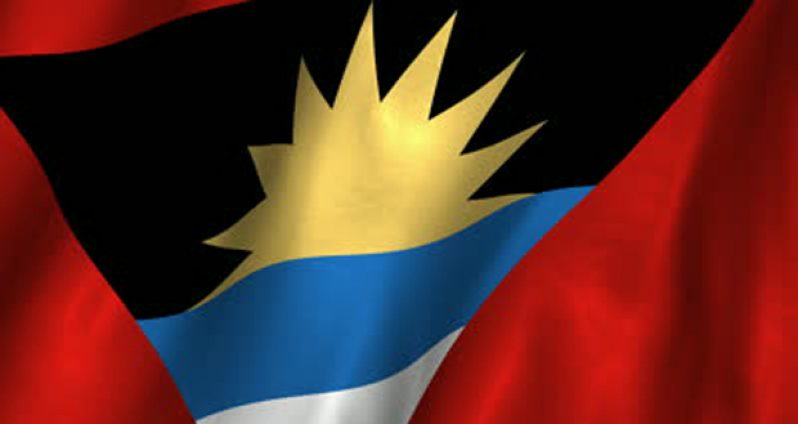-A case of ignorance or arrogance?
Analysis by Rickey Singh
THE Government of Antigua and Barbuda seems to have unintentionally committed an unpalatable wrong against the entire Caribbean Community. It’s a wrong that should be speedily corrected with an appropriate explanation for the benefit of the citizens of our 15-member regional integration movement.

The error in judgement, if that’s what it is, was last week’s official visit to The Dominican Republic (DR) by Antigua and Barbuda’s Minister of Tourism, Economic Development, Investment and Energy, Asot Michael. Among matters he discussed with that country’s Minister for Regional Integration, Miguel Mejia, in addition to bilateral relations, was the DR’s general interest in CARICOM that includes “different projects currently being developed…”
Improving bilateral and multilateral relations in an increasingly globalised world is clearly the way forward, particularly if mechanisms are already in place for countries of the same Region to ensure the most favourable arrangements for trade, economic, social and cultural relations—as in the case of the Caribbean Community in CARIFORUM (CARICOM plus the DR)—in a structured relationship with the European Union (EU).

Such relations must, of course, be rooted in shared concepts of economic and social development and, most decidedly, respect for basic human rights and dignity. But therein lies the rub in current poor, shaky relations between CARICOM and the DR. which have been severely ruptured by an undesirable naturalisation law that discriminates against thousands of immigrants in that country of Haitian origin.
Even, that is, after amendments were subsequently made to what exist as “Natursliation Law 169-14”. The governments in both Antigua and the DR would be fully aware of a so-called “red line, collectively drawn by CARICOM, to cease “doing business as usual” with the Government in Santo Domingo. Until, that is the controversial provisions which mock the basic rights and dignity of immigrants of Haitian origin, born in that Spanish-speaking Caribbean state, are fully recognised in the issuing of passports and other identification documents for overseas travels or as otherwise necessary.
Kennedy Centre’s stand
While the United Kingdom, which is involved with CARICOM and the DR in the UK/CARIFORUM mechanism for cooperation, and the European Union in general have been carefully managing their public

statements as they relate to CARICOM’S own principled public denunciations against the controversial “naturalisation law,” the criticisms from within the USA have been quite forthcoming, including the ‘Kennedy Centre for Justice and Human Rights.’
At their regular annual summit that took place last July in Antigua, CARICOM Heads of Government revisited the hiatus in relations with the DR over the discriminatory naturalisation laws and reaffirmed: “It would not be business as usual in the Community’s relationship with The Dominican Republic; and they would maintain their pressure in all fora in the continuing challenges to the human rights of The Dominicans of Haitian descent, including obtaining an advisory opinion of the Inter-American Court of Human Rights.”
Well, irony of ironies, host for that summit in St. John’s was newly-elected Prime Minister Gaston Browne. His Antigua and Barbuda Labour Party had scored an overwhelming victory at the June 12 general elections against the incumbent United Progressive Party (UPP) of then Prime Minister Baldwin Spencer. In establishing his first cabinet, Asot Michael was given the substantial portfolios he is known to have craved.
Now, since the wily Mr. Michael, known to be politically crafty and ambitious, would have been aware of the collective position on the Community’s DR relations-as reaffirmed by CARICOM Heads of Government at their Antigua Summit-why the sort of “fly-in-your-face” meeting last week in Santo Domingo with that country’s “Minister for Regional Integration” which concluded with an invitation extended by Minister Mejia for Prime Minister Browne to pay an official visit to The Dominican Republic?
PM Browne’s call
It is to be assumed that Minister Michael could not have travelled to the DR on official business without the prior knowledge of Prime Minister Browne. Therefore, since his Prime Minister—who has been busily engaged seeking financial aid for national development with jobs creation-was he fully aware of the nature of the purpose of Mr. Michael’s mission to the DR?
If so, did someone remind either the Prime Minister or Minister Michael of the latest re-affirmation of CARICOM’s “no-business-as-usual” stand with the DR for now, as recorded at that summit in St. John’s at which Prime Minister Browne was unanimously elected, as the Community’s chairman until the next summit in 2015?
When I checked this past week there could be no confirmation of any prior notification to the Community Secretariat about the official visit to the DR by Minister Michael. Prime Minister Browne, therefore, seems to have a moral obligation, as CARICOM’s current chairman, to at least offer a public explanation on the visit by his cabinet colleague to Santo Domingo at which bilateral relations were discussed in the face of CARICOM’s prevailing position against “business-as-usual” engagements with that country.
For his part, Prime Minister of St. Vincent and The Grenadines, Dr Ralph Gonsalves, the previous Community chairman, feels that it may be “appropriate” for his colleague Prime Minister Browne to offer an appropriate explanation to the CARICOM Bureau about the official visit to the DR by his ministerial colleague Michael.
This would be necessary, he feels, in view of the collective decision adopted at their July summit against any “business-as-usual” relations with the DR until appropriate adjustments are made to the controversial ‘naturalisation laws.” PM Gonsalves was the CARICOM leader who, as chairman, had initially intervened with the DR for changes in the naturalisation laws that he identified as being ‘racist and discriminatory.”
Over then, to Prime Minister Browne whose call it is.












